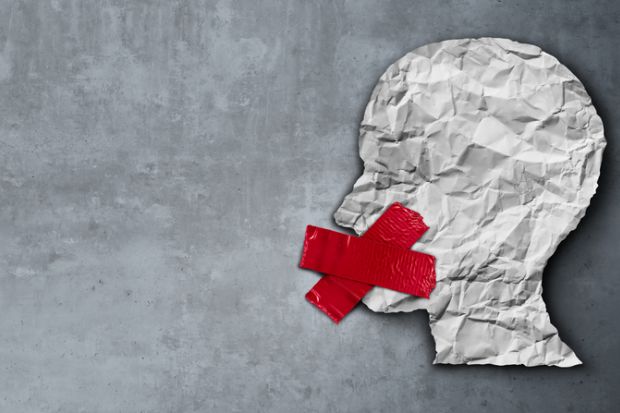This week in Parliament a UK government minister promised 'we will crack down on it hard' referring to academics sharing information from Russian sources and articulating views like the one in my tweet:
'As long as we're still able to hear two sides of the story we should continue striving to do so.'
Even if sometimes one side is clearly wrong, hearing what they say can still be important. And it should be remembered that an important factor in this case is the serious conflict that exists within Ukraine.
Citizens need to understand the challenges decision makers face, and political leaders need to understand what their adversaries are thinking. To know thy enemy is to reduce the risk of escalating a conflict through misunderstandings. In war, miscalculations can have terrible consequences. We also know that misinformation can sometimes even slip through on our own side, as when the UK went to war in Iraq, mistakenly believing it had weapons of mass destruction.
It is therefore worrying to hear the Secretary of State for Education so explicitly confirm my tweet's implicitly-stated fear that before long we may only be able to hear one side of a story. Are we at a point where both citizens' freedom of expression – a human right – and also academic freedom are under threat in Britain?
I happen to tweet purely in a capacity of personal concern and as a private citizen, but let's imagine an academic who is about to write a scholarly article about events in a war in another country. Should they present one side only? Would peer reviewers even accept that? Would it equip students to face the complexities of the world if they never learn how to rebut false claims because they are always shielded from them? Would it be in the interests of posterity to be bequeathed a one-sided historical record? And how would posterity judge a society whose universities were governed not by the principles of science and scholarship but by government edicts?
In the present situation, it will be rightly said that, morally speaking, there are not 'two sides' to a war of aggression, which is a crime under international law. So as our leaders rightly condemn Putin's invasion we can also earnestly hope they commit themselves to working for a future in which international law is respected – by all nations. More immediately, the hope is they will work to promote as swift and as bloodless an end to the war as possible in Ukraine – as well as in the less-publicised wars elsewhere. This means a commitment to supporting negotiation rather than risk being drawn into escalation and the prospect of a devastating internationalised war.
Negotiation involves different sides listening to each other. Politicians allied with one side need to have as full a picture as possible of the other's thinking. They also need to hear good independent advice. Who knows if Putin's decision to invade might have been avoided if fuller and franker discussion were permitted to influence it? Russia's political system punishes critical thinking and places academic freedom under serious constraints.
We don't want our own politicians to make the mistake of stifling views that could point out pathways to reconciliation by imposing restrictions on the range of acceptable public debate. With the suggestion of a crackdown on academics who might contribute to that, it is hard to see how our elected representatives would be serving the interests of the people they represent, or of people anywhere.
As for the people of Ukraine, their need is for peace – not to become the epicentre of World War III. There is such a risk if calls for a no-fly zone, or other measures that would lead to direct military confrontation between nuclear powers, are heard without challenge. To challenge them is not to be a stooge of the enemy but an ally of humanity.
Universities are there for the service of humanity. As the very name implies, they are responsible for maintaining universally shared standards of knowledge and understanding. They provide a vantage point from which the affairs of nations can be seen in wider perspectives. It is in everyone's interest that they be allowed to fulfil that role.
Freedom of expression within the law is central to the concept of a university. Without this guarantee and the freedom of inquiry which it protects, universities' vital contribution to new forms of knowledge and understanding would be compromised. This applies even in extreme circumstances, such as times of war.
 Source: iStock via https://www.timeshighereducation.com/blog/freedom-speech-should-not-be-restricted-lightly
Source: iStock via https://www.timeshighereducation.com/blog/freedom-speech-should-not-be-restricted-lightly